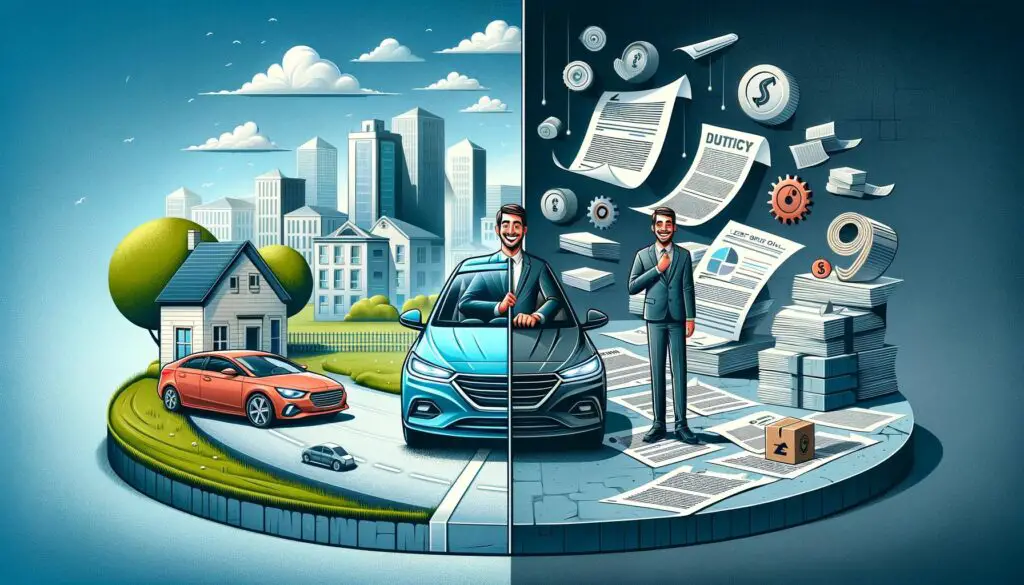| Pros | Cons |
|---|---|
| Lower Monthly Payments | No Ownership |
| New Car Experience | Mileage Limitations |
| Maintenance Benefits | Long-Term Cost |
| Tax Benefits for Businesses | Wear and Tear Charges |
Exploring the Advantages of Car Leasing
Lower Monthly Payments
Car leasing offers the advantage of lower monthly payments compared to purchasing a vehicle outright. This is because lease payments typically cover the depreciation of the car over the lease term rather than the full value of the vehicle. For individuals looking to manage their cash flow or keep their monthly expenses low, leasing can be an attractive option.
New Car Experience
One of the key benefits of leasing a car is the opportunity to experience the latest models and technology on a regular basis. With leasing, you can drive a new car every few years, allowing you to enjoy the latest features without the commitment of ownership. This can be particularly appealing for drivers who value having access to cutting-edge automotive advancements.
Maintenance Benefits
Many lease agreements include warranty coverage, providing peace of mind and protection against unexpected repair costs. With warranty coverage, lessees can avoid the financial burden of major repairs, as most issues will be covered by the manufacturer. This can result in lower overall maintenance expenses during the lease term compared to owning a vehicle.
Tax Benefits for Businesses
For business owners, leasing a car can offer significant tax advantages. Lease payments may be tax-deductible if the vehicle is used for business purposes, providing an opportunity for tax savings. This can be particularly beneficial for small businesses looking to maximize deductions and minimize tax liabilities.
Considerations When Leasing a Car
No Ownership
One of the primary drawbacks of leasing is the lack of ownership. Unlike purchasing a car, leasing does not result in ownership or equity buildup. At the end of the lease term, the car must be returned to the dealership, and lessees do not have the option to sell or trade in the vehicle for value. This means that leasing may not be the best option for individuals looking to build equity or invest in a long-term asset.
Mileage Limitations
Lease agreements typically come with mileage caps, which can restrict the amount of driving allowed during the lease term. Exceeding the mileage limit can result in additional fees at the end of the lease term, making it important for lessees to accurately estimate their annual mileage needs before signing a lease agreement. For individuals who frequently drive long distances or have unpredictable driving habits, leasing may not be the most practical option.
Long-Term Cost
While leasing may offer lower monthly payments initially, it can result in higher cumulative costs over the long term compared to purchasing a vehicle. This is because leasing involves paying for the depreciation of the car without building equity. As a result, lessees may end up paying more for the use of the vehicle over time compared to owning it outright. Before deciding whether to lease or buy, it’s important to consider the long-term financial implications and evaluate which option aligns best with your budget and lifestyle.
Wear and Tear Charges
At the end of the lease term, lessees may be responsible for additional charges for excessive wear and tear on the vehicle. This can include damage beyond normal wear and tear, such as dents, scratches, or interior stains. To avoid unexpected charges at the end of the lease term, it’s important to properly maintain the vehicle and address any damage or issues as they arise. Additionally, some lease agreements offer wear and tear protection plans for an additional fee, providing added peace of mind for lessees.
Conclusion
In conclusion, car leasing offers advantages such as lower monthly payments, access to new car models, and potential tax benefits for businesses. However, it’s important to consider the drawbacks, including the lack of ownership, mileage limitations, long-term cost implications, and potential wear and tear charges. Before deciding whether to lease or buy a car, it’s essential to carefully evaluate your individual needs, financial situation, and driving habits to determine which option is the best fit for you. Consulting with a financial advisor or automotive expert can provide valuable guidance and help you make an informed decision that aligns with your goals and priorities.


